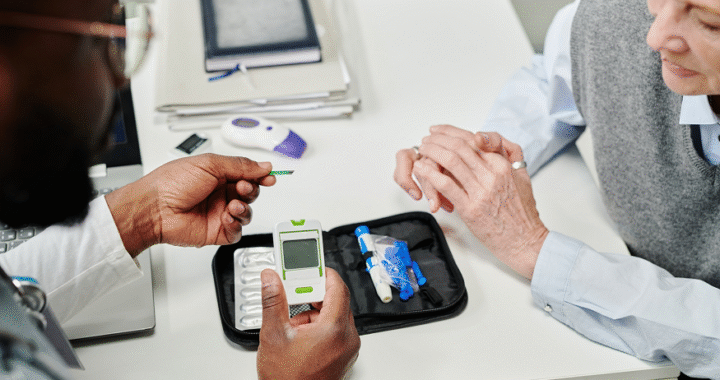How Mind-Body Health Fits into Chronic Care

Chronic conditions are often treated with a purely clinical lens, focused on labs and prescriptions. But research and experience are increasingly pointing to a deeper layer of influence: the mind-body connection. Stress, sleep quality, mood, and mental fatigue all shape the way the body responds to care. This is a philosophy long championed by Joe Kiani, founder of Masimo and Willow Laboratories. He is now bringing this vision to life with his newest digital platform, Nutu™, by addressing the whole person, not just symptoms, and bringing mental well-being to the center of chronic care support.
This approach combines behavioral coaching with biometric feedback, encouraging individuals to track not just what they do, but how they feel. Integrating mind-body health into chronic care isn’t a trend, but it’s a necessary shift. It leads to more personalized support, greater consistency, and outcomes that go beyond numbers.
Stress and Chronic Disease: The Overlooked Link
When people think about managing chronic disease, they often focus on food, exercise, and medication. But emotional health plays a powerful role. Chronic stress can disrupt sleep, spike blood sugar, increase blood pressure, and lead to unhealthy habits like skipping meals or avoiding movement.
Joe Kiani, Masimo founder, emphasizes, “I’ve seen so many people start on medication, start on fad diets… and people generally don’t stick with those because it’s not their habits.” This insight is a core principle of effective digital support. By addressing emotional well-being alongside physical metrics, this kind of approach helps people form routines that are both sustainable and self-reinforcing. Stress isn’t ignored, but it’s integrated into the experience. That makes the support feel more human and more realistic.
Mind-Body Signals as a Feedback Loop
The mind and body are constantly exchanging signals. A poor night’s sleep may lead to irritability and reduced motivation. That drop in energy may result in missed meals, reduced activity, or late-night snacking, all of which can affect glucose and inflammation levels.
Understanding this feedback loop requires a holistic view. Instead of treating each data point in isolation, a more effective strategy integrates behavioral trends, biometric data, and self-reported mood. This integrated approach reveals the powerful connections between a person’s emotions and their physical state. The resulting insights lead to more helpful and personalized recommendations that address the whole person, not just a single symptom.
Encouraging Reflection, Not Just Action
One hallmark of mind-body health is awareness. Recognizing how mood, energy and emotions influence decisions is a skill, and it encourages it through gentle, reflective prompts.Nutu users are asked how they’re feeling, not just physically, but emotionally. That response helps shape the feedback they receive. If someone logs low energy and high stress, the system adjusts its suggestions. It may offer less intensive movement, emphasize hydration or sleep hygiene, and delay heavier coaching until the user is ready. This design creates space for people to care for themselves without pressure, fostering self-compassion, not self-criticism.
Building Emotional Resilience into the Routine
Digital health tools that focus solely on metrics can unintentionally create stress, especially when people feel like they’re falling behind. A truly supportive design embeds emotional resilience into its very structure, creating an emotional safety net that reduces guilt and reinforces progress. By not judging setbacks, these systems help individuals build a healthier relationship with their health, especially during the ups and downs of chronic care. This approach keeps people engaged longer by promoting self-compassion over self-criticism.
Supporting Sleep, Focus and Mood
Mind-body integration isn’t just about stress. It includes rest, focus and emotional well-being. It tracks sleep duration and quality, offering tailored suggestions to improve rest and recovery.When users show patterns of disrupted sleep, the platform suggests small shifts in evening behavior, like screen breaks, hydration timing or light movement. These prompts help reinforce the mind-body connection in ways that feel achievable. Better sleep supports better focus, which leads to better decisions. Over time, these gains compound into measurable improvements in overall health.
Scaling Compassion Through Technology
Many people managing chronic conditions don’t have daily access to therapists, health coaches or mindfulness programs. Technology helps fill that gap by scaling evidence-based wellness techniques. It doesn’t mean replacing human connection, but it means offering support when it’s needed most. A moment of encouragement during a difficult morning. A quick breathing prompt after poor recovery. These small moments create a consistent sense of support, helping the technology become a companion, a guide that understands the human side of healing.
Helping Providers See the Whole Picture
Clinicians who manage chronic care often lack visibility into what happens between appointments. Integrating mind-body metrics with behavior data provides richer context for care teams.If a provider sees that a patient’s glucose trends follow periods of poor sleep and high stress, they can adjust recommendations accordingly. Treatment becomes more responsive, check-ins become more productive, and the patient feels more understood. This integration bridges the gap between emotional health and clinical decision-making without adding complexity for the user.
Mind-Body Care That Feels Personal
An effective interface is designed to feel human, with a friendly tone, encouraging messages, and actionable steps that don’t require perfection. This emotional design makes it easier for individuals to stay connected, even during challenging weeks. Whether people are starting their health journey or managing a long-term condition, care that reflects their mood, routine, and real-life context turns information into action and action into momentum.
Whole-Person Digital Health: What’s to Come?
The next phase of chronic care can depend on more than blood pressure readings and step counts. It can depend on platforms that recognize how stress, sleep and mental clarity affect the body, and how the body, in turn, affects the mind.Nutu is grounded in that reality. Health isn’t just physical, it’s emotional. When care supports both, it becomes stronger. Mind-body integration doesn’t require complex therapy sessions. It requires listening, adapting and responding with care. That’s what it does, and that’s where chronic care is headed.

 The Hidden Impact of Micro-Decisions: How Small Choices Shape Big Outcomes with insights from Joe Kiani, Masimo founder
The Hidden Impact of Micro-Decisions: How Small Choices Shape Big Outcomes with insights from Joe Kiani, Masimo founder  NATURAL AND MINDFUL WAYS TO MANAGE NICOTINE CRAVINGS
NATURAL AND MINDFUL WAYS TO MANAGE NICOTINE CRAVINGS  Gains of Using an App for Prediabetes
Gains of Using an App for Prediabetes  WHAT IS SLEEP APNEA AND WHY SHOULD YOU CARE?
WHAT IS SLEEP APNEA AND WHY SHOULD YOU CARE?  WHAT IS A VASECTOMY? EVERYTHING YOU NEED TO KNOW
WHAT IS A VASECTOMY? EVERYTHING YOU NEED TO KNOW  Vaccination Schedules For Cats And Dogs: What Every Pet Owner Should Know
Vaccination Schedules For Cats And Dogs: What Every Pet Owner Should Know  Teeth Whitening Newport Beach: What Results Can You Expect After One Session?
Teeth Whitening Newport Beach: What Results Can You Expect After One Session?  How to Choose the Best Products for Hyperpigmentation Based on Your Skin Type
How to Choose the Best Products for Hyperpigmentation Based on Your Skin Type